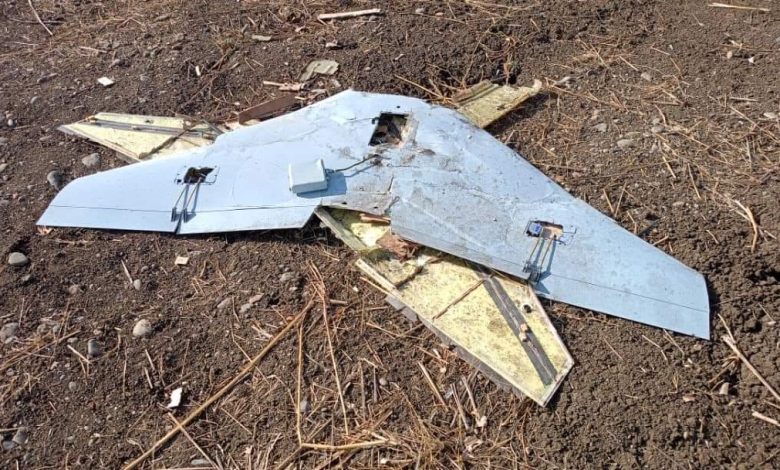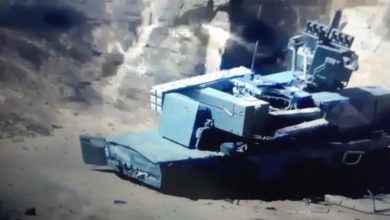Reports
10 Sudanese Soldiers Killed in Drone Attack on Military Base

Sudan Events – Agencies
Ten soldiers of the Sudanese army were killed, and several others were injured in a drone attack launched by the “Rapid Support Forces” militia on a military base in the city of Shendi, in the northern part of the country. This marks a new escalation in the use of suicide drones for offensive operations. The Sudanese army condemned the use of drones, stating that they “reflect their inability to confront soldiers directly.”
Eyewitnesses told Asharq Al-Awsat that a swarm of suicide drones attacked a Sudanese army infantry training camp at dawn on Wednesday, located in the Al-Mu’aqil area south of the city. They reported hearing a series of explosions throughout the city.
This is the first attack that resulted in casualties since the “Rapid Support Forces” militia began expanding its use of attack and suicide drones to target regions in the north of the country, areas that had previously remained outside the war zone.
Local sources reported that ground defense systems and jamming devices intercepted many of the drones, but several hit their target accurately, causing fatalities and injuries among soldiers at the military site.
The Army Condemns Drone Warfare In response, the commander of the Third Infantry Division, General Hamdan Abdel Qader Daoud, stated that the use of drones “reflects their inability to confront soldiers directly,” describing it as “a desperate attempt of a wounded creature flailing in its death throes.”
The Sudanese army and the “Rapid Support Forces” militia have intensified their use of drones in battles on the frontlines, particularly in the city of El Fasher, the capital of North Darfur state in western Sudan. The army uses Iranian-made “Migrant 6” drones and other Chinese-made drones.
Daoud expressed full confidence in the Sudanese Armed Forces’ ability to achieve victory soon. According to the Moral Guidance Department of the division, the visit was to assess the readiness of the forces and monitor training programs as part of evaluating combat preparedness to defeat the “rebel Rapid Support Forces.”
The Al-Mu’aqil operational base is located 177 kilometers north of the Sudanese capital, Khartoum. The local Al-Sudani newspaper quoted a military source stating that the attack on the Al-Mu’aqil base involved 11 suicide drones, 10 of which were intercepted by ground defenses. However, one drone hit a soldiers’ barracks, resulting in 10 deaths and five injuries, who were transported to the hospital.
This drone attack on Shendi is the fourth of its kind in just a few months.
Attack on Civilian Areas and Aircraft Downing Meanwhile, the “Rapid Support Forces” announced on Wednesday the downing of an Iranian-made fighter jet, the “Shahed 129,” in Khartoum Bahri. The militia stated in a Telegram post that the plane had been bombing civilians in Bahri and Omdurman, revealing the extent of military supplies acquired by the Sudanese army.
The militia condemned what it called the blatant foreign intervention in Sudanese affairs, urging the international community to condemn these interventions, which threaten Sudan and the region, especially the security of the Red Sea.
The Sudanese army continued to launch attacks from multiple fronts on the fortified positions of the “Rapid Support Forces” in Khartoum Bahri, which has recently become an active military operation zone.
The army is cautiously advancing in Bahri after achieving significant progress, taking control of the entire Al-Halfaya and Al-Samarab neighborhoods in the northern part of the city, and making slight progress in the Shambat area. According to field reports, the army plans to move south to connect with its forces at the Signal Corps in southern Bahri, as the first phase of opening up the entire city, where large groups of the “Rapid Support Forces” are still present.
According to local sources, clashes between both sides continue in scattered areas of the Shambat district, while the army attempts to break into the area via residential streets to reach the Signal Corps.
The army’s advance in Bahri is considered the largest since its announcement of launching the biggest military operation to recapture the capital Khartoum, including its three cities: Omdurman, Khartoum, and Bahri.
The “Rapid Support Forces” are based in the old neighborhoods of Bahri and the Kafouri area in the east of the city. They also maintain a significant presence in the eastern Nile areas. The army’s objective in advancing into Bahri is to carry out military operations to break the siege around its central command in the heart of Khartoum.
The “Rapid Support Forces” continue to control most of the capital Khartoum, the Al-Jazeera state in central Sudan, large areas in Darfur, and vast parts of Kordofan in the west.



